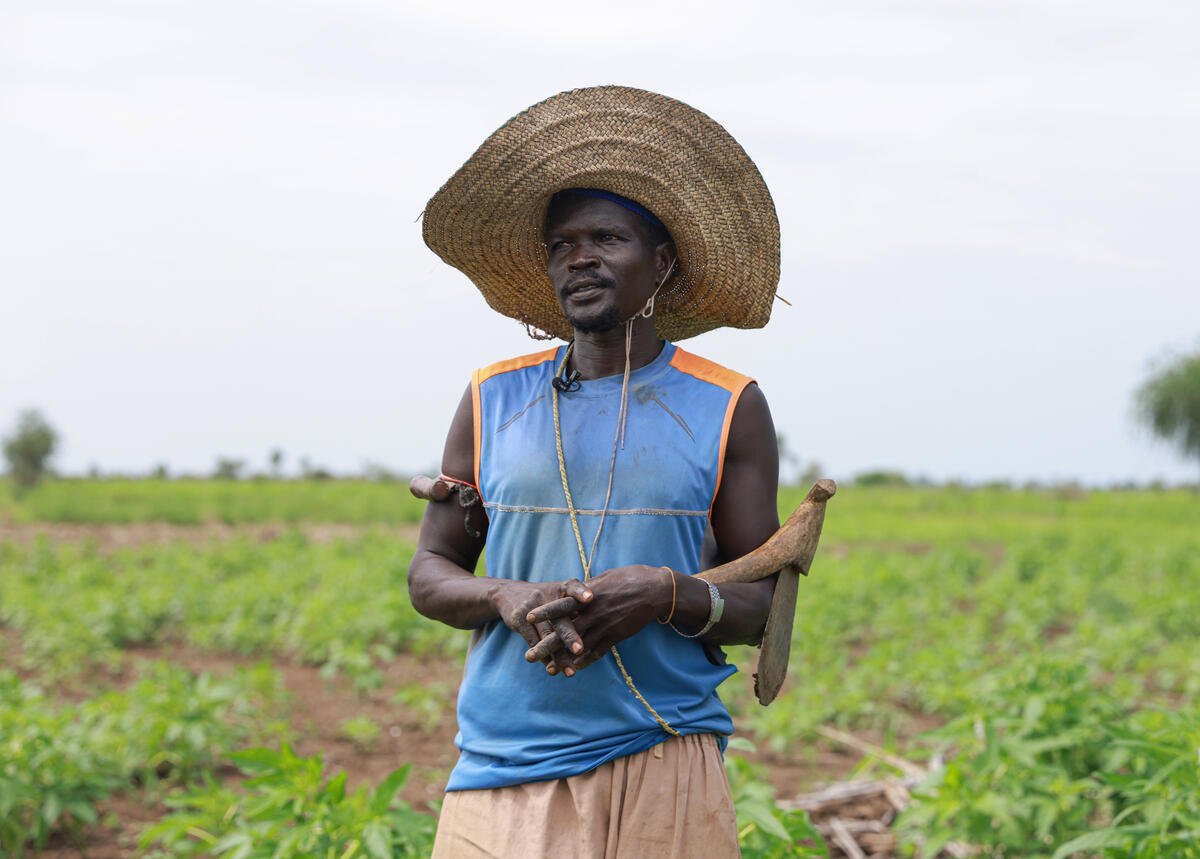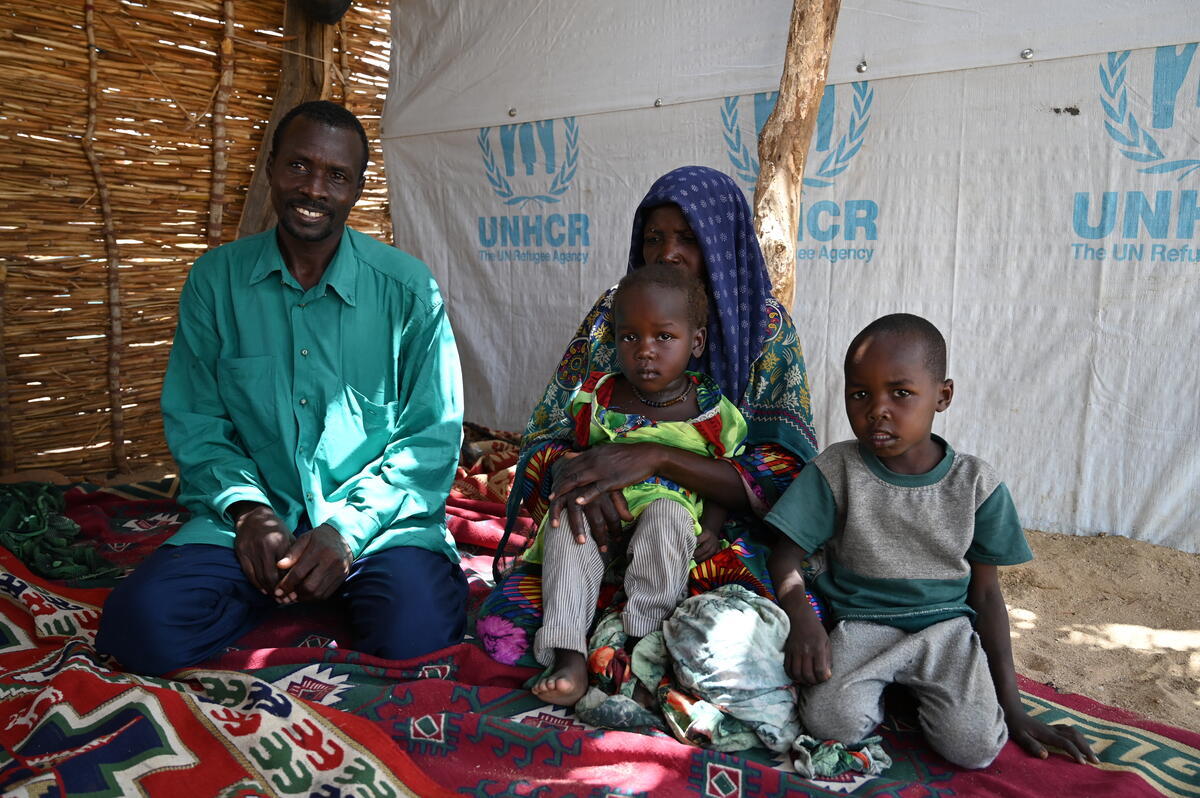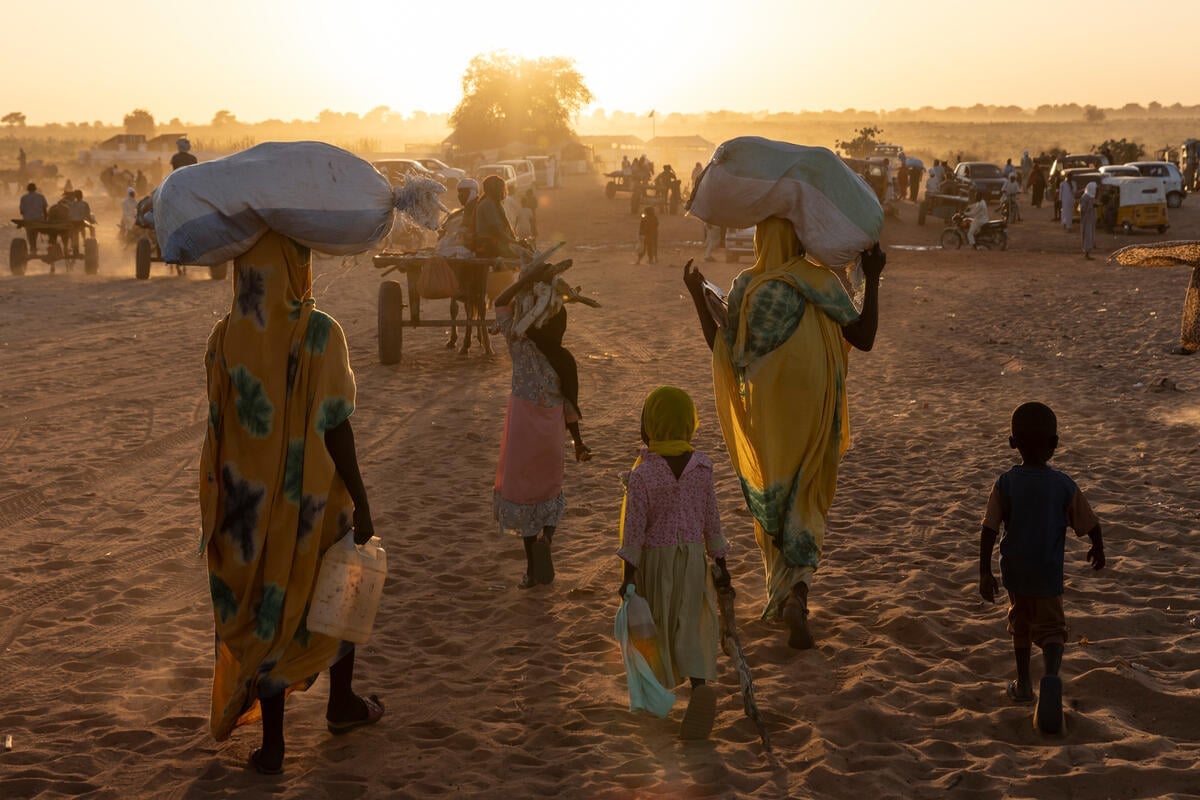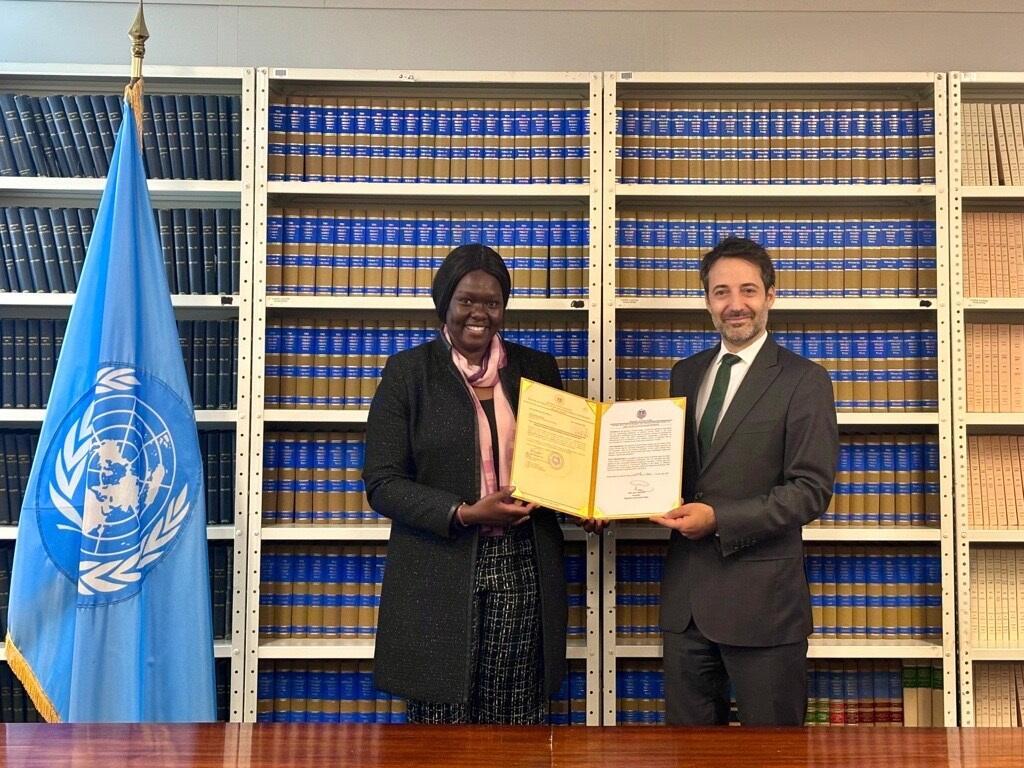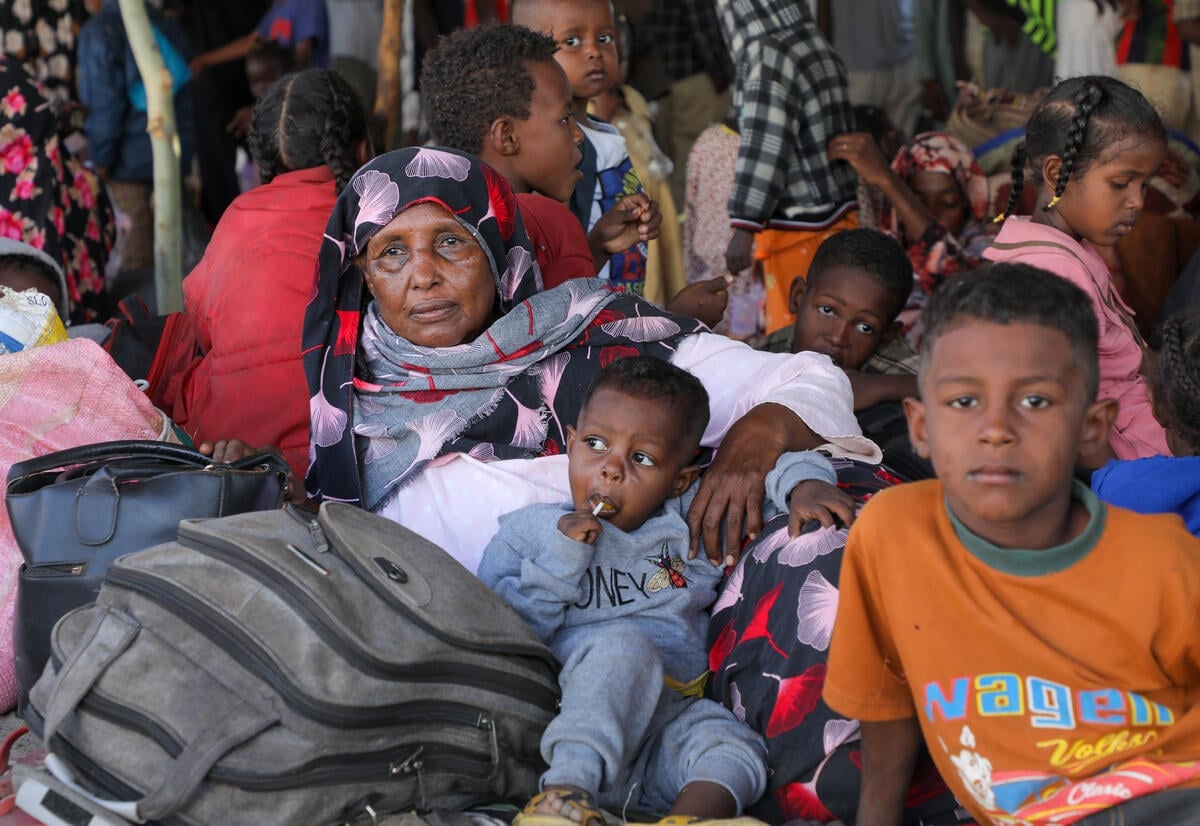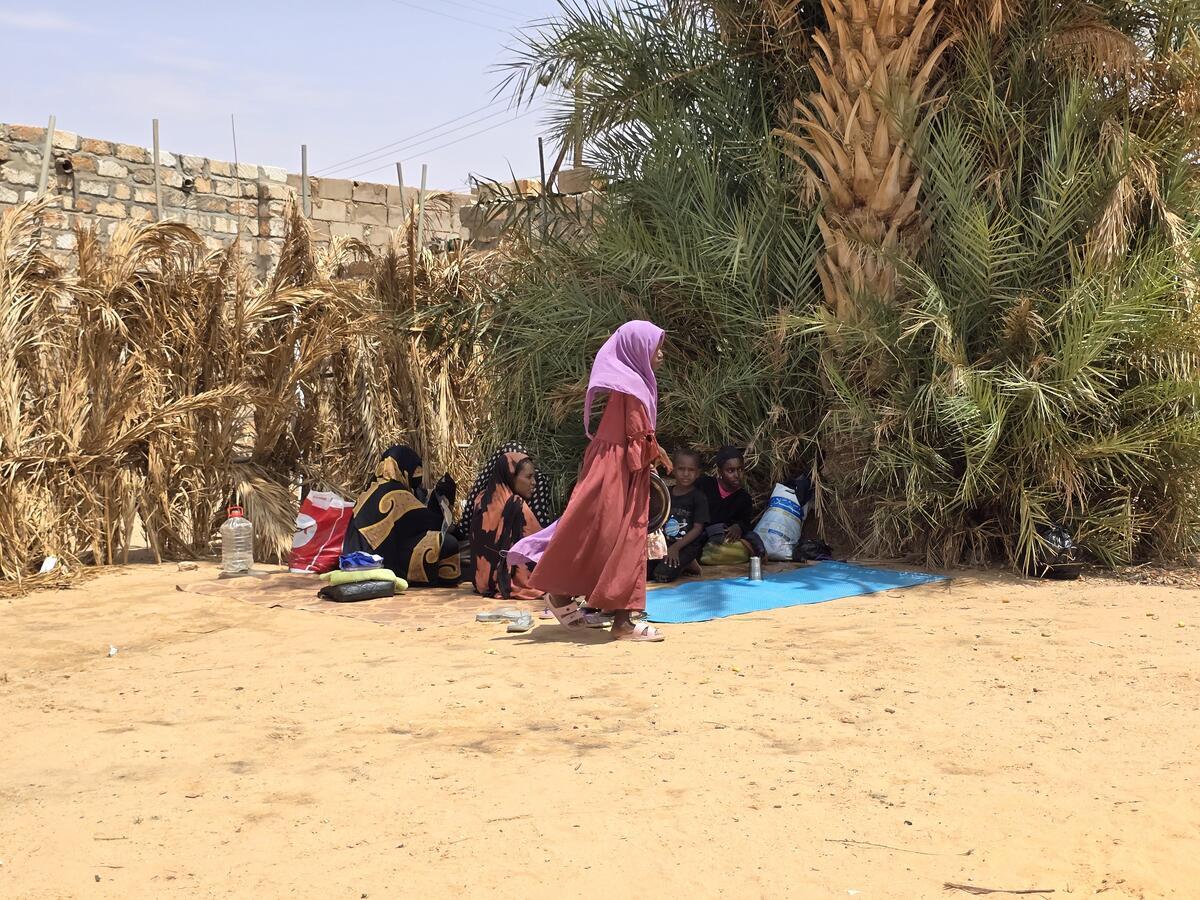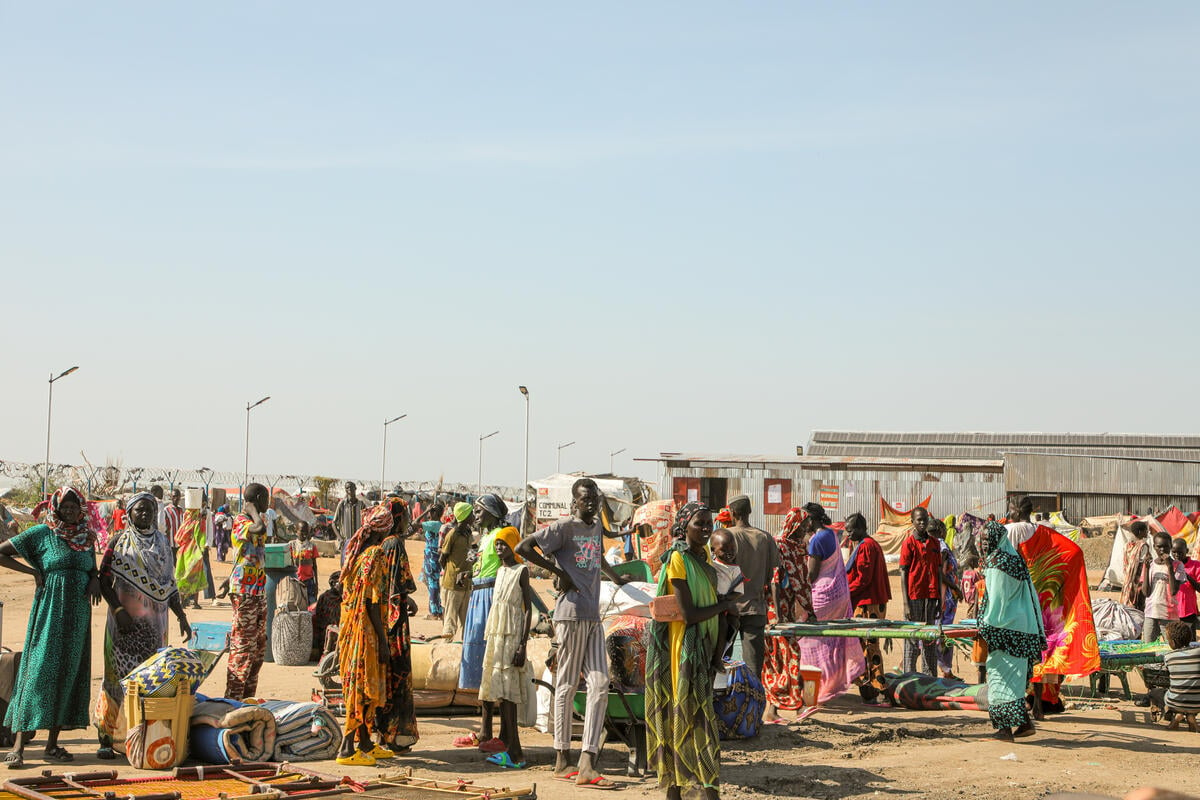UNHCR and partners rush aid as Sudan arrivals overwhelm South Sudan border
UNHCR and partners rush aid as Sudan arrivals overwhelm South Sudan border
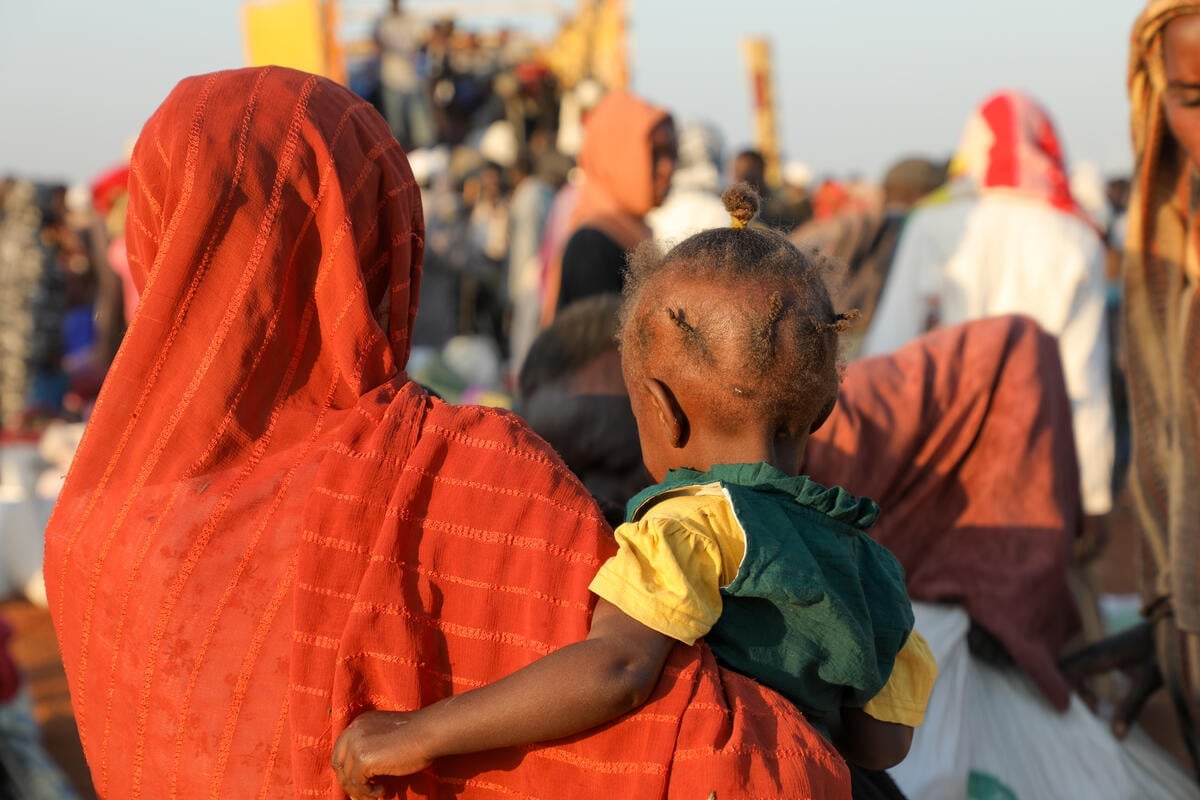
Families arrive at a transit centre in Renk, South Sudan, on 18 December after fleeing escalating violence in Sudan.
GENEVA – Over 20 months in, the war in Sudan shows no sign of slowing down and, in fact, continues to escalate. UNHCR, the UN Refugee Agency, warns that the recent surge in arrivals in South Sudan is overwhelming services in border areas, and funding for the humanitarian response remains insufficient.
In less than three weeks, over 80,000 people have sought safety in South Sudan following the escalation of fighting in Sudan's White Nile, Sennar, and Blue Nile States – more than tripling the average number of daily arrivals compared to previous weeks. The majority are women and children with critical humanitarian needs, arriving mainly through remote and hard-to-reach border crossings and settling in small border villages. Those fleeing the latest wave of violence in Sudan are not only Sudanese, but also South Sudanese refugees previously living in Sudan’s White Nile State, which had been relatively safe since the conflict started.
Refugees and returning South Sudanese are staying in makeshift shelters and some are sheltering under trees. Despite the limited services and resources available in these border locations, many are reluctant to move onwards, hoping the security situation improves in Sudan, allowing them to swiftly return home.
Initial assessments at Joda, the main border crossing between Sudan and South Sudan, show malnutrition rates exceeding the emergency threshold. Treatments are out of stock and food supplies are critically low, worsening the nutrition situation, particularly for children under 5 and pregnant and lactating women. Lack of clean water and insufficient latrines and sanitation facilities are also exacerbating the situation, posing a real risk of the spread of cholera and other deadly diseases. Local health facilities are either limited, overwhelmed or non-functional.
There is also a great need for psychosocial support and services as those fleeing recount traumatic experiences that forced them to flee, including aerial bombardments and witnessing mass killings. In one location, people spoke of having to walk for up to two weeks to reach safety, with several in the group reportedly dying during the journey from hunger, dehydration, and exhaustion.
Remote villages, where those fleeing have arrived, have, in some cases, doubled or even tripled in population size. For example, the villages of Gerbana and Dukuduku, which are hosting refugees for the first time since the conflict began, had a combined population of 6,000 only a few weeks ago and are now hosting 15,000 new arrivals, far exceeding the villages resources and infrastructure capacity.
The two existing transit centres in Renk currently host close to 17,000 people, four times their intended capacity. The Renk County Hospital is reportedly overwhelmed by the arrival of hundreds of wounded in the past few weeks.
In response to this new influx, UNHCR and partners are scaling up protection and assistance, notably as some of the areas receiving new arrivals lack the presence of humanitarian partners. Right now we are concentrating on providing life-saving assistance, including providing water and basic healthcare. At the Joda border crossing, monitoring capacities are being increased, and humanitarian actors have established border monitoring systems at the five unofficial crossing points.
High-energy biscuits, sanitation items and dignity and menstrual hygiene kits for women and sanitation items have been distributed, as well as oral rehydration sachets to manage dehydration and diarrhoea. Health partners have scaled up efforts by expanding bed capacity with additional tents and beds, replenishing medical supplies, and deploying more staff to treat critical patients at the main hospital.
Land is being identified to set up a new reception centre as well as expanding existing transit centres to accelerate registration and relocation to areas of return or other refugee hosting locations across the country. Local authorities are allocating land for new arrivals, enabling some to construct shelters.
Despite efforts to support this sudden influx, the humanitarian response remains woefully underfunded, with aid partners in South Sudan having received only 24 per cent of what is needed to adequately meet people’s needs this year. The lack of funding threatens efforts to address this new emergency and to meaningfully support new arrivals and the communities hosting them. UNHCR, along with 48 partners, will need $468 million in 2025 to support refugees and host communities.
Nearly 1 million people have arrived in South Sudan since the start of the Sudan conflict in April 2023.
For more information, please contact:
- For South Sudan, Carla Calvo, calvoc@unhcr.org; +211 927 141 812
- In Nairobi (regional), Dana Hughes, hughes@unhcr.org, +254 717 540 160
- In Geneva, Olga Sarrado, sarrado@unhcr.org, +41 797 402 307


